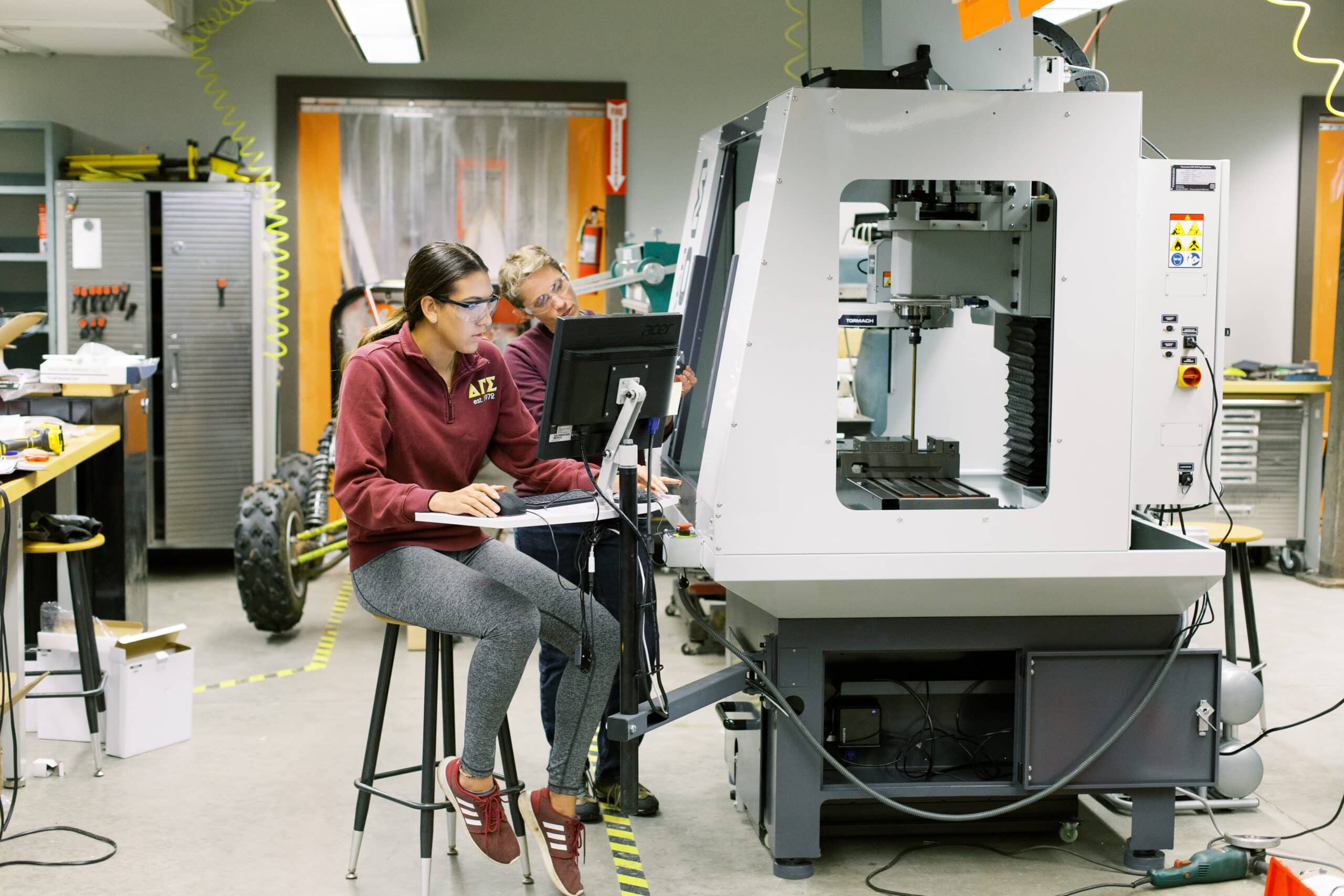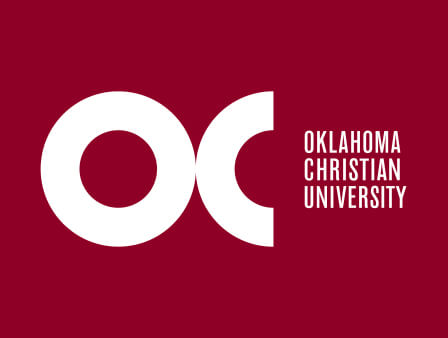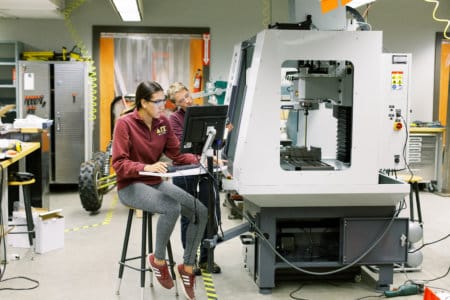Not all engineering programmes are solely research-based. Some cater more towards working professionals who want to improve their employability and advance their careers. Oklahoma Christian University’s (OC) postgraduate programmes fall under the latter category. “The MSE programme did stand out for me because I already have a master’s degree in computer science in India with around three years of work experience, and I wanted to know more about software engineering and its technicalities and how to make an impact in the overall subject matter,” says Akshara Pani Burra, a software engineering graduate. “I found that OC was offering all I needed.”
There are many benefits to getting a master’s degree. Those with one earn an average of US$17,000 more than those with only a bachelor’s, and 43% of those earning more than US$100,000 have an advanced degree. OC’s master’s programmes put you in the running to land these high-paying roles — they are designed specifically for professionals and are highly sought after by the industry.
Evening and online classes give students flexible hours to juggle career, life and study. Master’s classes are structured such that there are only one or two a week, as well as six start times during the year so that you can begin your degree at any time. At OC, all students, regardless of backgrounds and start dates, are welcomed warmly. Many report feeling highly valued and cared for no matter where they come from. There are also plenty of resources to help and guide international students.
Dedicated OC faculty, admissions specialists, and academic advisors are available to help students with all their needs. “Furthering my education, I chose to study at OC for my MSE,” says graduate Thi Nguyen. “The programme stood out for its thorough and challenging curriculum designed to develop advanced skills and deepen my understanding of engineering principles. The combination of practical and research-oriented coursework offered a solid foundation for budding engineers like myself.”

A master’s degree from OC can help you achieve the career of your dreams. Source: Oklahoma Christian University
The Master of Science in Computer Science (MSCS) programme includes hands-on opportunities that let students apply their theoretical knowledge in a real-world setting. “Throughout my college career, I had the privilege of interning for Financial Technologies Labs and Heartland Payment Systems,” says Chloe Sheasby, a Master of Science in Computer Science with Artificial Intelligence student. “FT Labs had me as the sole maintenance programmer for a bond trading system. That was difficult because I had no one to refer to and I was working in Pascal, which is a fairly old and outdated programming language. At Heartland, I was a Quality Assurance Engineering Intern, which taught me a lot about the importance of testing software. Heartland is a lot bigger than FT Labs, so seeing the difference in business practices was beneficial as well.”
MSCS students learn and experience skills that they immediately use in their job. As a student, Sheasby maintained a tutor scheduling system for OC. “The project started in the last year of my undergraduate degree, and we got it working well enough to be deployed as an internal application used by faculty and students at OC,” she says. “Throughout my graduate assistantship, I have been able to continue to support the application, which has taught me a lot about user interaction, real-world deployment, and weird issues.”
Named the 11th Most Popular Engineering Master’s Degree by GradDegree.com, OC’s Master of Science in Engineering (MSE) aims to increase your depth of knowledge by blending current theory and practice; enhance your communication skills while practising engineering and managing technology; and instill knowledge of issues of ethics, social responsibility, Christian values and faith. “For me, OC’s MSE degree stood out because of the way it integrated knowledge from many fields to solve real-world problems,” says student Shashidhar Virati. “The curriculum is comprehensive, covering not just the intricacies of engineering but also the fundamentals of business and management. This synergy aids in developing the potential of students as future leaders in technology-based fields. The programme’s focus on practical problem-solving, research possibilities, and ethical issues in engineering, as well as the faculty’s commitment to individualised instruction and mentoring, sealed the deal. It provides a well-rounded education in engineering, which is essential in today’s technology environment.”

OC students benefit from plenty of hands-on experiential learning opportunities. Source: Oklahoma Christian University
Just like Sheasby, Virati felt enriched whenever he could apply what he learned in labs and classrooms. What he liked most about these experiences was being able to solve problems and change courses when necessary. “These have been beneficial in that I’ve gained knowledge and understanding much beyond what could be obtained in a classroom,” he says. “Among them was a chance to work on a research project which challenged us to put into practice the theoretical understanding gained in our Control Systems course by designing a control system for an autonomous car.”
Whether students choose an MSE or MSCS degree, OC’s programmes allow them to specialise while remaining broad enough so that their skills are adaptable to evolving industries. “Without a doubt, my time at OC has greatly prepared me for whatever the future may bring,” says Virati. “The breadth of the curriculum has provided me with a solid grounding in theory, while the focus on practical applications and problem-solving has equipped me to face real-world difficulties head-on. The emphasis on moral concerns has given me a greater appreciation for my civic duties. Professional skills have been honed by participation in research projects and other forms of experiential learning. I am prepared and confident in my ability to achieve my long-term objectives.”
Prepare for the future with a master’s degree from Oklahoma Christian University; click here to apply now.
Follow Oklahoma Christian University on Facebook, Twitter, Instagram and YouTube.












